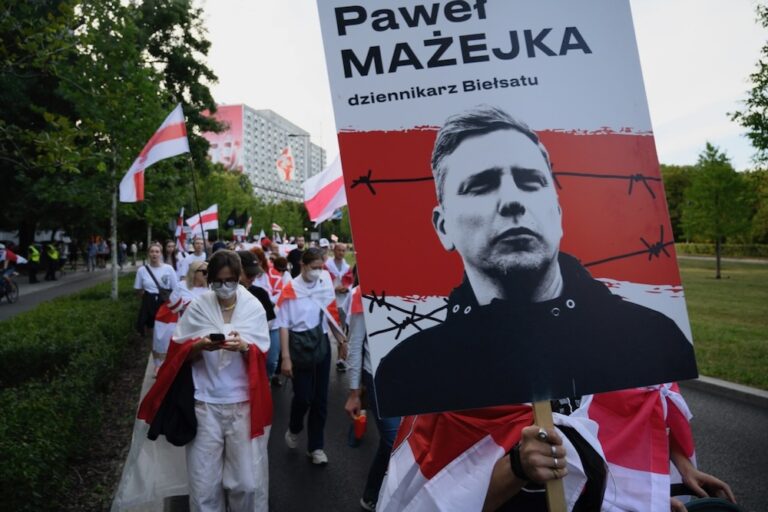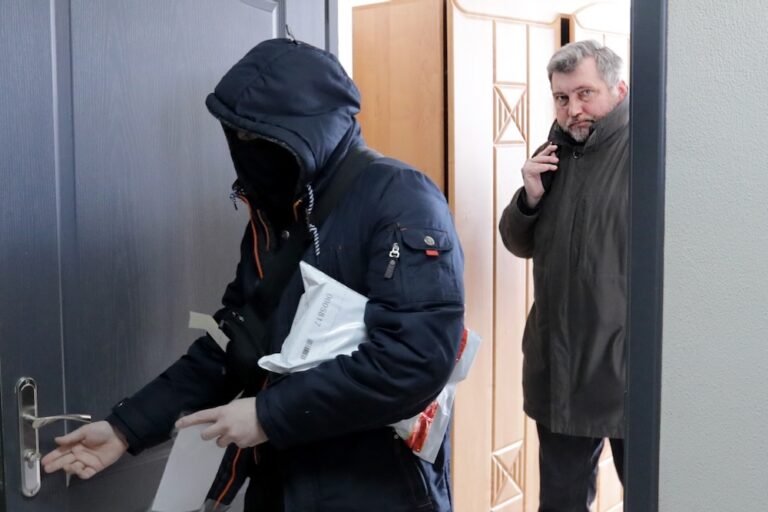(IFJ/IFEX) – At its meeting on 29 October 1997, the upper house of the Belarusian Parliament refused to confirm the draft amendments to the press law and sent the law back to the lower house. **Updates IFEX alerts dated 16 October, 2 July and 27 June 1997** An IFJ delegation met with President Alexander Lukashenko […]
(IFJ/IFEX) – At its meeting on 29 October 1997, the upper house
of the Belarusian Parliament refused to confirm the draft
amendments to the press law and sent the law back to the lower
house.
**Updates IFEX alerts dated 16 October, 2 July and 27 June 1997**
An IFJ delegation met with President Alexander Lukashenko on 29
October to hand him a joint declaration of the Belarusian
Association of Journalists and the Belarusian Union of
Journalists opposing the press law. The delegation urged
President Lukashenko not to sign the amendments to the press law
which would result in further restriction of press freedom.
Even though press freedom in Belarus remains under threat,
Belarusian journalists believed that international protests had
helped to influence the upper house. Without making any promises,
President Lukashenko assured the IFJ delegation that their
concerns would be taken into consideration in further discussions
on the press law.
Background Information
According to an alert by the Committee to Protect Journalists
(CPJ), the lower house of Parliament adopted several restrictive
amendments to the Belarusian Law on the Press and Other Mass
Media. The amendments provide for considerably more media
intervention by the executive branch’s State Press Committee. The
legislation would give the committee the power to suspend the
registration of periodicals upon its own ruling of press law
violations, decide which international publications can be
distributed in Belarus and determine the eligibility of foreign
media for accreditation in the country. The amendments also
establish heavy libel restrictions, especially on slander against
the President (see IFEX alerts).


